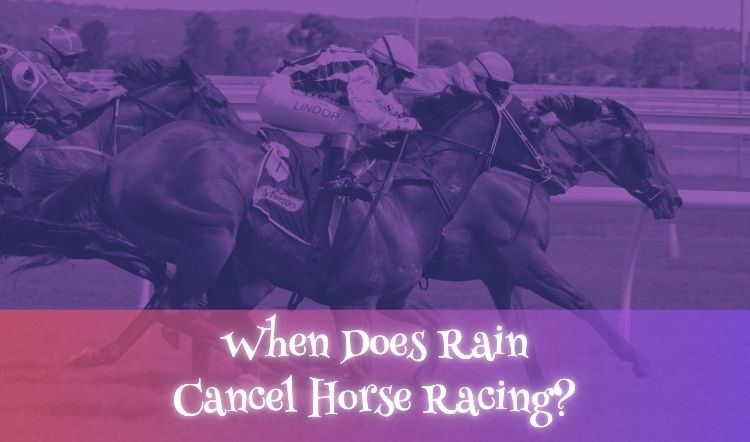
Horse racing often continues in challenging weather, but there are times when heavy rain leads to cancellations or rescheduling. For many racegoers and punters, it raises the question: what exactly prompts organisers to call off a meeting?
If you follow racing or enjoy horse racing betting, it’s useful to understand how the weather can influence the schedule. This guide looks at when and why races are cancelled due to rain, who decides, and what it might mean for your plans. Read on to learn more.
How Rain Impacts Races
Rain can affect horse racing in various ways. While light showers rarely cause issues, heavy or persistent rain can present significant challenges. On turf courses, wet conditions soften the ground, often slowing the horses and altering how the race plays out. Some horses handle soft ground better than others, which may influence their performance.
All-weather and synthetic tracks tend to be less affected by rain, but severe weather can still create safety concerns, such as poor visibility and slippery surfaces for both horses and jockeys.
Race officials always inspect the course before events to assess safety. If conditions fall below the required standard, races may be postponed or cancelled.
Horse Racing Cancellations: Who Decides?
Decisions about whether racing goes ahead in rainy conditions involve several key figures. Each racecourse employs a Clerk of the Course who regularly inspects the track, assessing factors such as surface water, ground softness, and visibility.
The British Horseracing Authority (BHA) holds the final authority, working closely with race officials to prioritise safety above all else. If they determine that conditions pose a risk, the meeting is usually cancelled. Occasionally, race stewards may also be involved in making these calls.
Ultimately, the decision is based on thorough safety checks, current weather conditions, and what is best for the welfare of both horses and those involved in the event.
Not Just Rain: Other Weather Concerns
Although rain is a common reason for disruption, other weather conditions can also affect horse racing. Freezing temperatures can cause the track to become hard or icy, creating safety risks. Snow and frost during winter often lead to delays or cancellations.
Heavy fog can reduce visibility to unsafe levels, while strong winds may unsettle the horses and increase hazards during races. Even hot weather can be a concern, as high temperatures might impact the well-being of both riders and horses.
Race organisers carefully monitor all these conditions to ensure the safety and health of everyone involved.
What Happens If a Race Is Cancelled?
When a race is cancelled, bets placed on that specific event are usually declared void, meaning bettors will have their stakes returned. Most bookmakers process these refunds automatically, though some may require bettors to check the status of their bets directly.
If other races are scheduled for the same day and weather conditions improve, those races may still go ahead as planned. Bettors can stay informed by following updates from official race organisers and the bookmakers they use.
Do You Get Your Money Back From Bets?
As mentioned earlier, if a horse race is cancelled before the start and you’ve placed a bet on it, most bookmakers will return your stake. Refunds are often automatic, but checking your bookmaker’s terms can clear up any questions.
In situations where a race is stopped after it begins, each bookmaker has their own policies. Always read through their rules before placing your bet so you know what to expect. If the cancellation is sudden, refunds may take a little longer to process.
How To Find Out About Cancellations
If you’re unsure whether a race will go ahead, a good place to start is the official racecourse website, which is usually updated quickly with the latest information.
You can also check the BHA website or their social media channels for official updates.
Most bookmakers provide current race statuses on their websites or apps, and many will notify you if a bet has been refunded due to a cancellation. In addition, major news outlets and specialist racing sites often report on schedule changes, especially for high-profile events.
Keeping an eye on these sources can help you stay informed so you can adjust your plans and make decisions with all the facts. Whether you’re following the races for entertainment or placing bets, understanding how weather conditions affect horse racing can help you make more informed decisions and even gain a deeper appreciation of the sport.
**The information provided in this blog is intended for educational purposes and should not be construed as betting advice or a guarantee of success. Always gamble responsibly.
